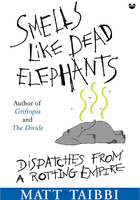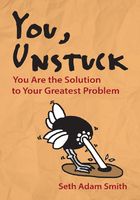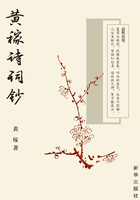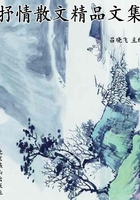spring mornings in Lima when the geraniums are an even brighter red, the roses more fragrant, and the bougainvillaeas curlier as they awaken, a famous physician of the city, Dr. Alberto de Quinteros – broad forehead, aquiline nose, penetrating gaze, the very soul of rectitude and goodness – opened his eyes in his vast mansion in San Isidro and stretched his limbs. Through the curtains he could see the sun shedding its golden light on the lawn of the carefully tended grounds enclosed by hedges of evergreen shrubs, the bright blue sky, the cheery flowers, and felt that sense of well-being that comes from eight hours of restorative sleep and a clear conscience.
It was Saturday and – providing there were not last-minute complications in the case of the woman with the triplets – he would not be obliged to go to the clinic and could devote the morning to working out at the gym and taking a sauna before Elianita's wedding. His wife and daughter were in Europe, cultivating their minds and replenishing their wardrobes, and would not be back for a month. Any other man with his considerable fortune and his looks – his hair that had turned to silver at the temples and his distinguished bearing, along with his elegant manners, awakened a gleam of desire even in the eyes of incorruptible married women – might have taken advantage of his temporary bachelorhood to have himself a little fun. But Alberto de Quinteros was a man not unduly attracted to gambling, skirt chasing, or drinking, and among his friends – who were legion – it was commonly said that 'his vices are science, his family, and the gymnasium.'
He ordered his breakfast sent up, and as it was being prepared he phoned the clinic. The doctor on duty informed him that the woman with the triplets had spent a quiet night and that the hemorrhaging of the woman he had operated on to remove a tumor had stopped. He gave instructions, left word that if an emergency came up he could be reached at the Remigius Gymnasium, or, if it were lunchtime, at his brother Roberto's, and said he'd drop by the clinic in any case in the late afternoon. By the time the butler brought him his papaya juice, his black coffee, and his toast with honey, Alberto de Quinteros had shaved and put on a pair of gray corduroy pants, heelless moccasins, and a green turtleneck sweater. As he ate his breakfast, he idly glanced through the usual reports of catastrophes and the gossip of the day as aired in the morning newspapers, then got out his gym bag and left the house. He stopped in the garden for a few seconds to pet Puck, the badly spoiled fox terrier, who bade him goodbye with affectionate yaps.
The Remigius Gymnasium was only a few blocks away, in the Calle Miguel Dasso, and Dr. Quinteros liked to go there on foot. He would walk along slowly, return his neighbors' greetings, peek into their gardens, which at this hour were freshly watered and the hedges neatly trimmed, and usually he dropped in at the Castro Soto Bookstore for a few minutes to pick up a couple of best sellers. Although it was early still, the inevitable gang of youngsters with open-necked shirts and unkempt hair were already outside the Davory, sitting on their motorcycles or on the bumpers of their sports cars, eating ice-cream bars, joking with each other, and planning that night's party. They greeted him respectfully, but he'd gone only a few steps past them when one dared give him one of those bits of advice that were his cross to bear at the gymnasium too, hoary jokes about his age and his profession, that he put up with day after day, patiently and good-naturedly: 'Don't wear yourself out, Doctor, think of your grandchildren.' He scarcely heard it because he was imagining how pretty Elianita would look in her wedding dress designed for her at Christian Dior's in Paris.
There weren't many people at the gym that morning. Just Coco, the instructor, and two weight-lifting addicts, Blacky Humilla and Polly Sarmiento, three mountains of muscles the equivalent of those of ten ordinary men. They must have arrived only a short time before, as they were still warming up.
'Well, here comes the stork,' Coco said, shaking hands.
'Still up and around, after all these centuries?' Blacky Humilla called out.
Polly Sarmiento limited himself to clacking his tongue and raising two fingers, his usual greeting that he'd imported from Texas. Dr. Quinteros liked the air of breezy familiarity that his gym companions adopted toward him, as though seeing each other naked and sweating together had created an egalitarian fraternity among them, in which differences in age and social position had disappeared. He answered them by saying that if they had need of his services he was at their disposal, that at the first signs of dizziness or morning sickness they should come immediately to his office, where the rubber glove for probing their privates was ready and waiting.
'Go change clothes and come do a few warm-ups,' Coco said to him, going back to jumping in place.
'If you feel a heart attack coming on, you may kick off, but so what?' Polly said encouragingly, picking up Coco's rhythm.
'The surfer's in there,' he heard Blacky Humilla say as he entered the dressing room.
And indeed his nephew Richard was there, in a blue sweat suit, putting on his gym shoes. He was doing so slowly and reluctantly, as though his hands had suddenly gone as limp as a rag doll's, and he had a bitter, vacant look on his face. He sat there staring past his uncle with a completely blank expression in his blue eyes and such total indifference to his presence that Dr. Quinteros wondered whether he'd turned invisible all of a sudden.
'It's only lovers who get lost in thought like that,' he said to his nephew, walking over and ruffling his hair. 'Come back down to earth, my boy.'
'Sorry, Uncle,' Richard replied, coming to with a start and blushing furiously, as though he'd been doing something he shouldn't and been caught in the act. 'I was thinking.'
'Wicked thoughts, no doubt.' Dr. Quinteros laughed as he opened his gym bag, chose a locker, and began to get undressed. 'Things must be in an uproar at your house. Is Elianita very nervous?'
Richard glared at him with what seemed like a sudden gleam of hatred in his eyes and the doctor wondered what in the world had gotten into this youngster. But his nephew, making a visible effort to appear to be his usual self, smiled faintly. 'Yes, everything's in an uproar. That's why I came down here to the gym to burn off a little fat till it's time.'
The doctor thought Richard was going to add 'to mount the gallows.' His voice was heavy with melancholy, and his features, the clumsiness with which he was tying his shoelaces, the jerky movements of his body, betrayed how troubled, upset, and anxious he was. He was unable to keep his eyes still: he kept opening them, closing them, staring into space, looking away, staring at the same imaginary point again, looking away once more, as though searching for something impossible to find. He was a strikingly handsome boy, a young god whose body had been burnished by the elements – he went surfing even in the dead of winter and also excelled at basketball, tennis, swimming, and soccer – sports that had given him one of those physiques that Blacky Humilla claimed were 'every queer's mad dream': not an ounce of fat, a smooth, muscular torso descending in a V to a wasp waist, and long, strong, supple legs that would have made the best boxer green with envy. Alberto de Quinteros had often heard his daughter Charo and her girlfriends compare Richard with Charlton Heston and conclude that Richard was even groovier-looking, that he beat Charlton all hollow. He was in his first year at the School of Architecture, and according to Roberto and Margarita, his parents, he'd always been a model child: studious, obedient, good to them and to his sister, honest, likable. Elianita and Richard were the doctor's favorite niece and nephew, and so, as he put on his jockstrap, his sweat suit, his gym shoes – Richard was standing over by the showers waiting for him, tapping his foot on the tile floor – Dr. Alberto de Quinteros was sad to see him looking so troubled.
'Problems on your mind, my boy?' he asked in a deliberately offhand way and with a kindly smile. 'Anything I can do to help?'
'No, not a problem in the world, whatever gave you that idea?' Richard hastened to reply, blushing furiously once again. 'I feel great and can't wait to warm up.'
'Did they deliver my wedding present to your sister?' the doctor suddenly remembered to ask. 'They promised me at the Casa Murguía that it would arrive yesterday.'
'A super bracelet' – Richard had begun jumping up and down on the white tiles of the locker-room floor. 'Sis was delighted with it.'
'It's your aunt who usually takes care of things like that, but since she's still running around Europe, I had to choose it myself.' A tender look came into Dr. Quinteros's eyes. 'Elianita in her wedding dress – what a lovely sight that's going to be.'
Because the daughter of his brother Roberto was as perfect a specimen of young womanhood as Richard was of young manhood: one of those beauties who do honor to the species and who make figures of speech comparing teeth to pearls, eyes to stars, hair to flax, and complexions to peaches and cream sound far too pedestrian. Slender, with dark hair and very white skin, her every movement graceful, even her manner of breathing, she had a tiny face with classic lineaments, and features that appeared to have been designed by an Oriental miniaturist. A year younger than Richard, she had just finished secondary school; her one defect was timidity – so excessive that the organizers of the Miss Peru contest, to their despair, had been unable to persuade her to enter – and everyone, including Dr. Quinteros, was at a loss to explain why she was getting married so soon, and above all why she was marrying Red Antúnez. There was no denying that young Antúnez had certain things going for him – his good heart and his good nature, a degree in business administration from the University of Chicago, the fertilizer company he would one day inherit, several cups he'd won bicycle racing – but among the innumerable boys of Miraflores and San Isidro who'd courted Elianita and who would have committed murder or robbed a bank to marry her, Red was beyond a doubt the least attractive and (Dr. Quinteros was ashamed of allowing himself to harbor such an opinion regarding someone who within a few hours would become his nephew by marriage) the dullest and most dim-witted.
'You take longer to change clothes than my mom, Uncle Alberto,' Richard complained between leaps.
When they went into the exercise room, Coco, for whom pedagogy was not a way of earning a living but a vocation, was instructing Blacky Humilla, pointing to his stomach and preaching this axiom of philosophy to him: 'When you eat, when you work, when you're at the movies, when you're humping your wife, when you're having a drink, at every moment in your life, and, if possible, even in your coffin: suck in your gut!'
'Ten minutes of warm-ups to make your carcass happy, Methuselah,' the instructor ordered Dr. Quinteros.
As he jumped rope next to Richard and felt a pleasant warmth creep over his whole body, the thought came to him that, when all was said and done, it really wasn't so terrible to be fifty years old if a person was in as good shape as he was. Among his friends who were his age, was there a single one with a belly as smooth as his, such supple muscles? Without searching any farther, his brother Roberto, what with his spare tire and his potbelly and his premature hunchback, looked ten years older than he did, despite the fact that he was three years younger. Poor Roberto, he must be sad at seeing Elianita, the apple of his eye, getting married. Because, of course, he'd be losing her in a way. The doctor's daughter, Charo, would be getting married almost any day now – her fiancé, Tato Soldevilla, would soon be getting his degree in engineering – and then he, too, would feel sad and older. Dr. Quinteros went on jumping rope without getting tangled up in it or missing a step, with the agility that comes with practice, changing feet and crossing and uncrossing his hands like a consummate gymnast. He saw in the mirror, however, that his nephew was jumping too fast and recklessly tripping all over himself. His teeth were clenched, his forehead was gleaming with sweat, and he was keeping his eyes closed as though to concentrate better. Was he perhaps having woman trouble?
'That's enough rope jumping, you two lazybones.' Even though he was lifting weights with Polly and Blacky, Coco had had his eye on them and was keeping track of the time. 'Three sets of sit-ups. On your butts, you fossils.'
Abdominals were Dr. Quinteros's strong point. He did them very fast, with his hands behind the nape of his neck, with the board raised to the second position, keeping his back raised off the floor and almost touching his knees with his forehead. Between each series of thirty he took a one-minute rest, lying stretched out flat, breathing deeply. When he'd finished the ninety, he sat down and noted, to his satisfaction, that he'd beaten Richard. After this workout, he was sweating from head to foot and could feel his heart pounding.
'I just can't understand why Elianita's marrying Red Antúnez,' he suddenly heard himself say. 'What does she see in him?'
It was the wrong thing to say and he immediately regretted having done so, but Richard didn't seem to be at all taken aback. Panting – he'd just finished his abdominals – he replied with a feeble joke: 'They say love is blind, Uncle Alberto.'
'He's a fine boy and I'm sure he'll make her very happy,' Dr. Quinteros went on, feeling a bit disconcerted and trying to make up for having been so outspoken. 'What I meant was that among your sister's admirers were the best matches in Lima. And what did she do but send them all packing and end up saying yes to Red Antúnez, who's a good kid, but such an, well, er, let's face it …'
'Such an ass, is that what you're trying to say?' Richard broke in helpfully.
'Well, I wouldn't have put it that crudely,' Dr. Quinteros said, inhaling and exhaling and flinging his arms in and out. But, to tell the truth, he does seem a bit dim-witted. He'd be perfect for anyone else, but he just can't hold a candle to a girl as outstanding as Elianita. His own outspokenness made him feel uncomfortable. 'Listen, you mustn't take what I said the wrong way.'
'Don't worry, Uncle Alberto.' Richard smiled. 'Red's a good egg and if the kid's picked him she knows what she's doing.'
'Three sets of side bends, you cripples!' Coco roared, with eighty kilos above his head and puffed out like a toad. 'Sucking in your belly – not sticking it out!'
Dr. Quinteros thought that, with the gymnastics, Richard would forget his problems, but as he did his side bends, he saw his nephew working out with renewed fury, his face again set in an anxious, irritated expression. He remembered that in the Quinteros family there were a great many neurotics and thought that perhaps Roberto's eldest son had inherited the tendency and was destined to carry on the tradition among the younger generation, and then he was distracted by the thought that it might have been more prudent after all to have dropped by the clinic before coming to the gym so as to have a look at the woman with the triplets and the one he'd operated on for the tumor. Then he stopped thinking altogether because the physical effort absorbed him totally, and as he raised and lowered his legs ('Leg rises, fifty times!'), flexed his trunk ('Trunk twist with bar, three sets, till your lungs burst!'), working his back, his torso, his forearms, his neck, obeying Coco's orders ('Harder, great-granddaddy! Faster, corpse!'), he was simply a pair of lungs inhaling and exhaling, skin dripping with sweat, muscles straining, tiring, aching. When Coco yelled out: 'Three sets of fifteen pullovers with dumbbells!' he'd reached his limit. Out of pride, he tried nonetheless to do at least one set with twelve kilos, but he couldn't. He was exhausted. The weight slipped out of his hands on the third try and he had to put up with the jokes of the weight lifters ('Mummies to the grave and storks to the zoo!' 'Call the funeral home!' 'Requiescat in pace, amen!') and watch with mute envy as Richard – still in a hurry, still furious – completed his routine with no difficulty. Discipline, perseverance, balanced diets, regular habits aren't enough, Dr. Quinteros thought. Up to a certain limit they compensated for the differences; once past that limit, age created insuperable distances, unbreachable walls. Later, sitting naked in the sauna, blinded by the sweat dripping through his eyelashes, he mournfully repeated a phrase he'd read in a book: 'Youth, whose memory brings despair!' As he was leaving, he saw that Richard had joined the weight lifters and was working out with them. Coco made a mocking gesture in Richard's direction and said: 'This handsome lad has decided to commit suicide, Doctor.'
Richard didn't even smile. He was holding the weights over his head and the expression on his beet-red face, dripping with sweat, the veins standing out, betrayed an exasperation that he appeared to be on the point of taking out on them. The idea flashed through the doctor's mind that his nephew was about to bash in the heads of all four of them with the weights he was holding in his hands. He said goodbye to the others and murmured to Richard: 'I'll see you at the church in a little while.'
Once he'd returned home and called the clinic, he was relieved to learn that the mother of the triplets wanted to play bridge with some friends in her room and that the woman who'd had the tumor removed had asked if she could eat some won ton in tamarind sauce today. He authorized the bridge game and the won ton, and with his mind completely at ease now, he changed into a dark blue suit, a white silk shirt, and a silver-gray tie that he fastened down with a pearl stickpin. As he was putting scent on his handkerchief, a letter from his wife arrived, with a P.S. from Charito. They had mailed it from Venice, city number 14 on the tour, and had written: 'By the time you receive this letter, we'll have done at least seven more cities, all gorgeous.' They were happy and Charito was very taken with Italian men: '… as handsome as movie stars, Papa, and you can't imagine what big flirts they are, but don't tell Tato, a thousand kisses, ciao.'
He walked over to the Church of Santa María, on the óvalo Gutiérrez. It was still early and the guests were just beginning to arrive. He sat down in one of the front rows and whiled away the time looking at the altar, decorated with lilies and white roses, and the stained-glass windows that looked like bishop's miters. Once again he realized that he didn't like this church at all: its combination of stucco and bricks was unaesthetic and its ogee arches pretentious. Every so often, he greeted an acquaintance with a smile. Naturally, since everybody he'd ever known was arriving little by little: very distant relatives, friends he hadn't seen for ages, and the crème de la crème of the city, of course, bankers, ambassadors, industrialists, politicians. Ah, that Roberto, that Margarita, such social butterflies, Dr. Quinteros thought, without acrimony, full of indulgence toward the weaknesses of his brother and sister-in-law. The wedding luncheon was bound to be a lavish affair.
He felt a rush of emotion on seeing the bride enter, just as the first bars of the Wedding March pealed out. She was really stunningly beautiful, in her filmy white dress, and her little face, in profile beneath the veil, had something extraordinarily graceful, ethereal, spiritual about it as she walked toward the altar, with lowered eyes, on Roberto's arm; corpulent and august, her father was hiding his emotion by assuming the air of a grand seigneur. Red Antúnez seemed less homely than usual in his brand-new cut-away coat, his face radiant with happiness, and even his mother – an ungainly Englishwoman who despite having lived in Peru for a quarter of a century still got her Spanish prepositions mixed up – looked attractive in her long dark dress and her hairdo two stories high. It's quite true, Dr. Quinteros thought: patience pays off. Because poor Red Antúnez had pursued Elianita ever since the two had been children, and had besieged her with thoughtful and attentive gestures that she had invariably greeted with Olympian disdain. But he had put up with all of Elianita's cutting remarks and snubs and the dreadful jokes of the youngsters in the neighborhood poking fun at his resignation. A persistent young man, Dr. Quinteros reflected, whose determination had been rewarded, and now here he was, pale with emotion, slipping the wedding band on the ring finger of the prettiest girl in Lima. The ceremony had ended, and as Dr. Quinteros was making his way toward the church reception rooms, amid a buzzing throng, nodding his head right and left, he suddenly spied Richard, standing by himself next to a column, as though he were disgustedly keeping his distance from everyone.
As he waited in line to congratulate the bride and groom, Dr. Quinteros was obliged to laugh at a dozen jokes about the government told to him by the Febre brothers, a pair of twins who looked so much alike that it was said that even their own wives couldn't tell them apart. The reception room was so jam-packed it seemed about to collapse; many of the guests were still outside in the gardens, waiting their turn to come inside. A swarm of waiters circled about, offering champagne. Laughter, jokes, toasts could be heard on every hand, and everyone agreed that the bride was absolutely beautiful. When Dr. Quinteros finally reached her, he saw that Elianita still looked serene and elegant despite the heat and the crush of people. 'A thousand years of happiness, sweetheart,' he said to her, embracing her, and she said in his ear: 'Charito called me this morning from Rome to congratulate me, and I talked with Aunt Mercedes, too. How darling of them to have phoned me!' Red Antúnez, dripping with sweat and as red as a shrimp, was beaming with happiness. 'So from now on I'll have to call you uncle, too, is that right, Don Alberto?' 'Of course, nephew,' Dr. Quintero answered, clapping him on the back, 'and you'll have to address me in the familiar tu form as well.'
Half asphyxiated, he left the reception room, and amid the popping of flashbulbs, the press of the crowd, greetings, he finally managed to reach the garden. There were fewer people per square centimeter there and he could at least breathe. He took a glass of champagne and soon found himself surrounded by a circle of doctor friends of his, the butt of their endless jokes about his wife's trip abroad: Mercedes wouldn't come back home, she'd stay over there with some Frenchy, you could already see tiny cuckold's horns growing out of either side of his forehead. Everybody seems bent on making fun of me today, Dr. Quinteros thought to himself, remembering the gym, as he patiently put up with their teasing. Every so often he caught a glimpse of Richard above a sea of heads, standing at the other end of the reception room, amid laughing boys and girls: glum and scowling, he was downing glasses of champagne as though they were water. Maybe he feels sad that Elianita's marrying Antúnez, Dr. Quinteros thought. Perhaps he, too, would have liked to see his sister make a more brilliant match. No, it was more likely that he was going through some sort of identity crisis. And Dr. Quinteros remembered how he himself had gone through a difficult transition period when he was Richard's age, unable to decide whether he should study medicine or aeronautical engineering. (His father had finally tipped the scales with a weighty argument: as an aeronautical engineer in Peru, he could look forward to only one career, spending the rest of his life designing kites or model airplanes.) Perhaps Roberto, who was always all wrapped up in his business affairs, was in no position to advise Richard. And Dr. Quinteros, in one of those accesses of generosity that had earned him everyone's esteem, decided that one of these days he would invite his nephew over and subtly explore the best way to help him, with precisely the delicate touch that the case required.
Roberto's and Margarita's house was on the Avenida Santa Cruz, just a few blocks from the Church of Santa María, and when the reception in the sacristy was over, the guests who had been invited to the wedding luncheon filed down the street, beneath the trees and the sun of San Isidro, to the red-brick mansion with its shingled roof, surrounded by lawn, flowers, and grillwork fence, and very prettily decorated for the wedding party. The moment Dr. Quinteros arrived at the front gate, he saw that the celebration was going to go beyond his own predictions, that he was about to attend a social event that the gossip columnists would describe as 'a magnificent occasion.'
Tables and umbrellas had been set up all over the garden, and at the far end of it, next to the kennels, a huge awning shaded a table with a snow-white tablecloth running the length of the wall and loaded with trays of multicolored canapés. The bar was next to the pond full of bright-gilled Japanese fish, and there were enough glasses, bottles, cocktail shakers, and pitchers of punch set out to quench the thirst of an army. Waiters in short white jackets and maids in coifs and aprons were receiving the guests and plying them, from the moment they entered the gate, with pisco sours, carob piscos, vodka and tropical fruit, glasses of whiskey or gin or flutes of champagne, and little cheese sticks, tiny potatoes with hot peppers, sour cherries stuffed with bacon, breaded shrimp, vol-au-vent, and all the tidbits dreamed up by the collective culinary genius of Lima to stimulate the appetite. Inside the house, huge baskets and bouquets of roses, gladiolas, stocks, carnations, tuberoses, standing against the walls, set out along the stairways or on the windowsills and the tables and desks and commodes and cabinets, refreshed the atmosphere. The parquet floor was newly waxed, the curtains pristine, the porcelains and silver gleaming, and Dr. Quinteros smiled at the thought that probably even the pre-Columbian figurines in their glass cases had been polished. There was also a buffet in the foyer, and in the dining room a vast assortment of desserts – marzipan, ice cream, ladyfingers, meringues, candied egg yolk, coconut sweets, walnuts in syrup – had been set out around the impressive wedding cake, a construction decorated with tulle and spun-sugar columns that set the ladies to cooing with admiration. But what aroused their curiosity most of all were the wedding presents, on display upstairs; such a long line had formed to have a look at them that Dr. Quinteros immediately decided not to queue up too, even though he would have liked to see if his bracelet looked impressive alongside all the other gifts.
After he'd wandered all over the house, more or less – shaking hands, giving and receiving friendly embraces – he went back out into the garden and sat down under an awning to sip his second glass of champagne of the day in relative peace and quiet. It was all going very well; Margarita and Roberto were really experts at the grand gesture. And even though he considered their idea of hiring a combo a touch lacking refinement – the carpets, the pedestal table, and the buffet with the ivory pieces had been removed so that there would be room to dance – he excused this inelegance as being a concession to the younger generation, since, as everybody knew, today's young people thought that a party without any dancing wasn't a party at all. They were starting to serve the turkey and the wine, and now Elianita, standing on the second step in the foyer, was tossing her bride's bouquet as dozens of her schoolmates and neighborhood girlfriends waited with outstretched arms, hoping to catch it. In a corner of the garden Dr. Quinteros spied old Venancia, Elianita's nanny since the day she'd been born, moved to tears, wiping her eyes with the corner of her apron.
His palate was unable to discern the vintage of the wine, but he knew immediately that it was an imported one, perhaps Spanish or Chilean, or for that matter – in view of all this day's mad extravagances – possibly a French one. The turkey was so tender it melted in his mouth, the puree as smooth as butter, and there was a cabbage-and-raisin salad that, despite his dietary principles, he couldn't resist the second time it came around. He was enjoying a second glass of wine, as well, and beginning to feel pleasantly drowsy, when he saw Richard making his way toward him, swaying back and forth with a glass of whiskey in his hand; his eyes were glassy and his voice quavered.
'Is there anything stupider than a wedding celebration, Uncle Alberto?' he murmured, with a scornful wave of his hand at everything around them and collapsing in the chair alongside him. His tie had come undone, there was a fresh stain on the lapel of his gray suit, and his eyes showed signs not only of all the liquor he had drunk but of a barely repressed, oceanic rage.
'Well, I grant you I'm not terribly fond of parties,' Dr. Quinteros replied good-naturedly. 'But the fact that at your age you don't like them very much either surprises me, Richard.'
'I absolutely abhor them,' his nephew muttered, looking about as though he'd like to wipe every last guest off the face of the earth. 'I don't know what the hell I'm doing here.'
'Just think how your sister would have felt if you hadn't come to her wedding.' Dr. Quinteros pondered all the silly things that alcohol makes a person say. Hadn't he seen Richard whooping it up at many a party? Wasn't he an excellent dancer? Hadn't he often seen his nephew trooping in at the head of the gang of boys and girls coming up to Charito's rooms to have a spur-of-the-moment dance? But he didn't remind him of any of these things, and merely watched him drain his glass and ask a waiter for another whiskey.
'Be that as it may, you'd better steel yourself,' he said to him. 'Because when you get married, your mother and father are going to throw an even bigger party for you than this one.'
Richard brought the new glass of whiskey to his lips and, half closing his eyes slowly, took a sip. Then, without raising his head, in a muffled voice that reached the doctor's ears as a slow, nearly inaudible whisper, he muttered: 'I'm never going to get married, Uncle Alberto, I swear to God – never.'
Before he could answer him, a slender, fair-haired girl, a blue silhouette with a determined air, planted herself in front of them, grabbed Richard by the hand, and without giving him time to react, dragged him to his feet. 'Aren't you ashamed to be sitting here with the old men? Come and dance, you idiot.'
Dr. Quinteros watched the two of them disappear through the door of the foyer and suddenly realized he'd lost all his appetite. He could hear those two little words, 'old men' – uttered so unthinkingly and in such a sweet piping voice by the youngest daughter of his friend Aramburú, the architect – ringing in his ears like a persistent echo. After drinking his coffee, he got up and went to have a look at what was going on in the living room.
The party was in full swing now and the dancing had gradually spread beyond its original matrix in front of the fireplace, where they had installed the orchestra, into the neighboring rooms, in which couples were also dancing and singing along with the cha-cha-chas and the merengues, the cumbias, and the waltzes, at the top of their lungs. Fostered by the music, the sun, and the drinking, the wave of joy had spread from the young people to the adults and from the adults to the oldsters, and to his surprise Dr. Quinteros saw that even Don Marcelino Huapaya, an octogenarian related to the family, was waggling and shaking his creaking old bones, following the rhythm of 'Nube Gris,' with his sister-in-law Margarita in his arms. The atmosphere in these rooms full of smoke, noise, movement, light, and happiness suddenly made Dr. Quinteros slightly dizzy; he leaned on the banister and closed his eyes for a moment. And then, smiling and happy too, he stood there watching Elianita, still in her wedding gown but without her veil now, leading the dancing. She never once stopped for a second; at the end of each piece, twenty men surrounded her, asking for the next dance, and with flaming cheeks and shining eyes, she chose a different partner each time and returned to the maelstrom. His brother suddenly appeared at his side. Instead of the morning coat, he was now wearing a lightweight brown suit, but sweating nonetheless because he'd been dancing.
'I can't believe she's married, Alberto,' he said, motioning to Elianita.
'She looks simply adorable,' Dr. Quinteros said with a smile. 'And you've given her a really lavish wedding, Roberto.'
'The best in the world is none too good for my daughter,' the brother exclaimed with a touch of sadness in his voice.
'Where are they going to spend their honeymoon?' the doctor asked.
'In Brazil and in Europe. The trip's their wedding present from Red's parents.' He waved in the direction of the bar and said laughingly: 'They're supposed to leave early tomorrow morning, but if he keeps on at this rate, my son-in-law's not going to be in any condition to go off on a honeymoon.'
A group of Red Antúnez's pals had surrounded him and were taking turns drinking a toast with him. The groom, his face more flushed than ever, was laughing a bit anxiously and trying to cheat by merely wetting his lips in his glass each time, but his friends were protesting and making him down every last drop. Dr. Quinteros looked around for Richard, but he couldn't see him either in the bar or dancing or in the part of the garden visible from the windows.
It was at that moment that it happened. The waltz 'ídolo' was just ending, the couples were preparing to applaud, the musicians were raising their fingers from their guitars, Red was facing up to the twentieth toast, when the bride suddenly raised her right hand to her eyes as though to chase away a mosquito, staggered, and before her partner could catch her, fell to the floor. Her father and Dr. Quinteros stood there motionless, thinking perhaps that she'd slipped and would get to her feet again in a moment, laughing fit to kill, but the commotion in the living room – exclamations, people pushing and shoving to reach her, her mama's voice shouting 'Elianita, Elianita, oh, my poor little darling!' – made them run to help her, too. Red Antúnez had leapt to her side and swooped her up in his arms, and with a group of friends following close behind, was now carrying her upstairs, with Se?ora Margarita leading the way, saying over and over: 'This way, to her room, slowly, watch your step,' and pleading: 'A doctor, somebody call a doctor.' Some of the members of the family – Uncle Fernando, Cousin Chabuca, Don Marcelino – were reassuring the guests, ordering the musicians to resume playing. Dr. Quinteros saw his brother Roberto motioning to him from the top of the stairs. How stupid of me, he thought. I'm a doctor, what am I waiting for? He bounded up the stairs two by two as people moved quickly aside to let him past.
They'd taken Elianita to her bedroom, a room decorated in pink, overlooking the garden. Roberto, Red, Venancia the nanny were standing around the bed, where the girl, still very pale, was beginning to come to and blink her eyes as her mother, sitting beside her, rubbed her forehead with a handkerchief soaked in alcohol. Red had taken one of his bride's hands in his and was looking at her with mingled rapture and anguish in his eyes.
'For the moment, you are all to go outside and leave me alone with the bride,' Dr. Quinteros ordered, assuming his professional role. And as he ushered them toward the door: 'Don't worry, I'm sure it isn't anything. But out you go – I want to have a look at her.'
The only one who refused to leave was old Venancia; Margarita practically had to drag her out bodily. Dr. Quinteros went back over to the bed and sat down next to Elianita, who looked at him in fear and trembling from between her long black eyelashes. He kissed her on the forehead and smiled at her as he took her temperature: it wasn't anything, she mustn't be frightened. Her pulse was a bit unsteady and she was having difficulty breathing. The doctor noticed that her dress was very tight-fitting across the bosom and he helped her unbutton and take it off.
'Since you have to change clothes in any case, you'll save time this way, my girl.'
When he saw the cruelly tight girdle, he realized instantly what was wrong, but kept himself from making the slightest gesture or asking a single question that might betray the fact that he'd discovered his niece's secret. Elianita's face had grown redder and redder as she took off her dress, and she was so embarrassed now that she didn't raise her eyes or say a word. Dr. Quinteros told her it wasn't necessary to remove her underclothes, just the girdle, because it was making it hard for her to breathe. Smiling the while, and assuring her, his mind seemingly elsewhere, that it was the most natural thing in the world if on her wedding day, what with all the emotion of the occasion, plus all the hustling and bustling about and all the fatigue of getting ready for the big day, and above all if she were mad enough to go on dancing for hours on end without a minute's rest, a bride happened to have a fainting spell, he palpated her breasts and her belly (which, on being freed from the powerful embrace of the girdle, had literally popped out) and deduced, with the certainty of a specialist through whose hands thousands of pregnant women had passed, that she was in her fourth month. He examined the pupils of her eyes, asked her a couple of stupid questions to put her off the track, and advised her to rest for a few minutes before going back downstairs – and above all not to go on dancing like that.
'You see, you just got a little too tired, my girl. In any event, I'm going to give you a little something to counteract all the day's excitement.'
He stroked her hair, and to give her time to compose herself before her parents came back into the room, he asked her a few questions about her honeymoon trip. She answered him in a languid voice. Going on a trip like that was one of the best things that could happen to a person; with all the work he had, he could never take the time off to visit so many countries. And he hadn't even been to London, his favorite city, for almost three years now. As he spoke, he watched Elianita surreptitiously put her girdle out of sight, slip on a bathrobe, lay a skirt, a blouse with an embroidered collar and cuffs, a pair of shoes out on a chair, lie down in the bed again, and cover herself with the down quilt. He wondered whether it wouldn't have been better to have a frank talk with his niece and give her some advice as to what she should and shouldn't do on her wedding trip. No, the poor thing would have had a bad time of it, she'd have felt very embarrassed. Moreover, she'd undoubtedly been seeing a doctor in secret all this time and would know exactly what she should and shouldn't do. Nonetheless, wearing such a tight girdle was dangerous, she might have a real scare, or harm her baby if she continued to wear it. He was touched to think that Elianita, that little niece he could only think of as an innocent child, had conceived. He walked over to the door, opened it, reassured the family in a loud voice so that the bride would hear him: 'She's healthier than any of the rest of us, but she's dead-tired. Send somebody out to buy her this tranquillizer and let her rest for a little while.'
Venancia had rushed into the bedroom, and Dr. Quinteros saw over his shoulder that Elianita's old nanny was cooing over her and comforting her. Her father and mother entered the room, too, and Red Antúnez was about to do so as well, but the doctor discreetly took him by the arm, led him down the hall with him to the bathroom, and closed the door.
'In her condition it was imprudent of her to have danced the whole evening like that, Red,' he said in an even tone of voice, as he soaped his hands. 'She might have had a miscarriage. Advise her not to wear a girdle – and especially not such a tight one. How long has she been pregnant? Three months, four?'
It was at that moment that the first hint of the awful truth dawned on Dr. Quinteros, as swift and as deadly as a rattlesnake bite. In terror, sensing that the silence in the bathroom had turned electric, he looked in the mirror. Red was standing there, staring at him with incredibly wide-open eyes, his mouth contorted in a grimace that made his face look grotesque, and deathly pale.
'Three months, four?' he heard him stammer in a choked voice. 'A miscarriage?'
Dr. Quinteros felt the earth sinking beneath his feet. What a stupid, ignorant fool you are, he thought. He remembered now, of course, with the terrible clarity of hindsight, that the whole thing – Elianita's getting engaged, the wedding – had taken place within just a few short weeks. He turned his eyes away from Antúnez and stood there, drying his hands too slowly, as he searched desperately in his mind for some lie, some pretext that would rescue this youngster from the hell into which he had just plunged him. He managed only to mutter something that seemed to him to be equally stupid: 'Elianita mustn't find out that I know. I let her think I didn't. And above all, don't worry. She's quite all right.'
He headed quickly for the door, looking at Antúnez out of the corner of his eye as he went past him. He was standing there, rooted to the spot, his eyes staring into empty space, his mouth wide open too now, and his face drenched with sweat. He heard him lock the bathroom door from inside behind him. He's going to burst into tears, he thought, pound his head against the wall and tear his hair, he's going to curse me and hate me even more than her, even more than – who? He walked slowly down the stairs, covered with guilt, full of misgivings, as he kept repeating to people, like an automaton, that Elianita was quite all right, that she'd be coming back downstairs in just a few minutes. He went out into the garden, and breathing a bit of fresh air did him good. He walked over to the bar, drank a glass of whiskey neat, and decided to go back home without waiting to witness the denouement of the drama that, out of sheer na?veté and with the very best of intentions, he had provoked. What he wanted was to shut himself up in his study, curl up in his black leather armchair, and immerse himself in Mozart.
At the front gate he came upon Richard, sitting on the grass in a lamentable state. He was sitting cross-legged like a Buddha, leaning back against the fence, his suit wrinkled and covered with dust, stains, bits of grass. But it was his face that distracted the doctor from the memory of Red and Elianita and made him pause: in Richard's bloodshot eyes, alcohol and rage seemed to have wreaked their mounting havoc in equal degrees. Two threads of spittle hung from his lips, and the expression on his face was both pitiful and grotesque.
'This can't be, Richard,' he murmured, bending over and trying to make him get to his feet. 'Your mother and father mustn't see you like this. Come on, let me take you home with me till you've sobered up. I never thought I'd see you in such a state, my boy.'
Richard looked at him without seeing him, his head dangling, and though he obediently did his best to stand up, his legs gave way. The doctor had to take him by the arms and hoist him to his feet as though he were lifting weights. He managed to make him walk, holding him up by the shoulders. Richard teetered back and forth like a rag doll and seemed about to tumble headlong at any moment. 'Let's see if we can find a taxi, because if we walk you're not even going to make it to the corner, my boy,' he murmured, stopping along the curb of the Avenida Santa Cruz, and holding Richard up with one arm. Several taxis went by, but they were occupied. The doctor kept trying to flag one down. The wait, on top of the memory of Elianita and Antúnez and his anxiety as to the state his nephew was in, was beginning to make him nervous – him, Doctor Quinteros, who never lost his composure. At that moment, in the incoherent babble that was escaping Richard's lips, half under his breath, he made out the word 'revolver.' He couldn't help smiling, and ever cheerful in the face of adversity, said, as if to himself, without really expecting Richard to hear him or answer: 'And why do you want a revolver, my boy?'
Richard's reply, as he gazed into space with rolling, murderous eyes, was slow, hoarse, perfectly clear. 'To kill Red with.' He had uttered each syllable with icy hatred. He paused, and then added in a voice that suddenly broke: 'Or to kill myself with.'
He began mumbling again, and Alberto de Quinteros could no longer make out what he was saying. Just then, a taxi stopped. The doctor shoved Richard inside, gave the driver the address, and got in himself. The moment the taxi started off, Richard burst into tears. He turned to look at him and the boy leaned over, put his head on his chest, and sobbed, his body shaking with a nervous tremor. The doctor put his arm around him, rumpled his hair just as he'd done a little while before with his sister, and reassured the taxi driver, who was looking at him through the rearview mirror, with a gesture that meant 'the boy's had too much to drink.' He let Richard sit there, huddled next to him, weeping and dirtying his blue suit and his silver-gray tie with his tears and spittle and mucus. He didn't blink an eye, nor did his heart skip a beat, when in his nephew's incomprehensible soliloquy, he managed to make out that phrase, repeated two or three times, that horrendous phrase that at the same time sounded beautiful and even chaste: 'Because I love her as a man loves a woman and I don't give a damn about all the rest, Uncle.'
In the garden of the house, Richard vomited, with wrenching spasms that frightened the fox terrier and brought disapproving looks from the butler and the maids. Dr. Quinteros took Richard by the arm and led him to the guest room, made him rinse out his mouth with water, undressed him, put him to bed, made him swallow a strong sleeping pill, and remained at his side, calming him with affectionate words and gestures – that he knew the boy could neither hear nor see – till he felt him fall into the deep sleep of the young.
Then he phoned the clinic and told the doctor on duty that he wouldn't be coming in until the next day unless some dire emergency came up, instructed the butler to say he wasn't in no matter who called or came to see him, poured himself a double whiskey, and shut himself up in the music room. He put a pile of Albinoni, Vivaldi, and Scarlatti records on the turntable, because he'd decided that a few superficial, Baroque, Venetian hours would be a good antidote for the dark shadows in his mind, and buried in his soft leather chair, with his Scotch meerschaum pipe smoking between his lips, he closed his eyes and waited for the music to wreak its inevitable miracle. The thought came to him that this was a privileged occasion for putting to the test that moral rule that he had tried to live by since his youth, that axiom that had it that it was better to understand men than to judge them. He did not feel horrified or indignant or unduly surprised. He noted in himself, rather, a hidden emotion, an invincible benevolence, mingled with tenderness and pity, as he said to himself that it was now blindingly clear why such a pretty girl had suddenly decided to marry an idiot, why the king of the Hawaiian surfboard, the handsomest youngster in the neighborhood, had never been known to have a girlfriend he was crazy about and seriously courting, and why he had always fulfilled without protest, with such laudable zeal, his duties as his younger sister's chaperone. As he savored the aroma of the tobacco and sipped the pleasantly fiery whiskey in his glass, he told himself that there was no reason to worry too much about Richard. He'd find a way to persuade Roberto to send him abroad to study, to London for instance, a city where he'd find enough new and exciting things to make him forget the past. On the other hand, he really was worried, and consumed with curiosity, as to what would happen to the two other characters in the story. As the music little by little intoxicated him, a whirlwind of unanswered questions circled around and around in his mind, growing fainter and fainter, spaced farther and farther apart: Would Red Antúnez desert his reckless, foolhardy spouse that very night? Might he have done so already? Or would he say nothing, and giving proof of what might be either exceptional nobility or exceptional stupidity, stay with that deceitful girl whom he had so persistently pursued? Would there be a great public scandal, or would a chaste veil of dissimulation and pride trampled underfoot forever hide this tragedy of San Isidro?















